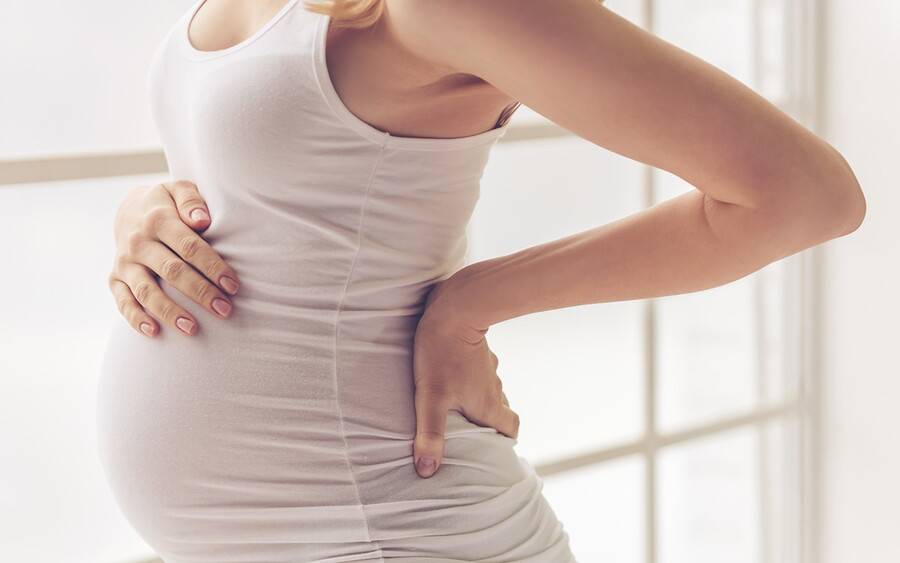8 Tips to Relieve Back Pain During Pregnancy
Back pain is common during pregnancy but can be reduced

Back pain is common during pregnancy but can be reduced
Back pain is a common part of pregnancy, especially in the later months. If you’re pregnant, back pain may be making your life miserable.
You don’t have to accept aches and pain as simply part of your condition, however. Consider the many things you can do to prevent or relieve back pain during pregnancy.
“Many pregnant women can ease their back pain through postural awareness and exercises that relieve back strain,” says Rebeca Sandoval, MD, an OB-GYN at Scripps Clinic Hillcrest. “But if your back pain persists, seek medical attention. Your doctor can help determine the cause of your pain and ways to address it.”
Women should consult with their health care provider before starting any new medications or treatments for any pregnancy-related discomfort, Dr. Sandoval adds.
Causes of back pain during pregnancy
Several factors can contribute to back pain during pregnancy, including weight changes, pregnancy hormones and a shift in posture.
Hormonal changes during pregnancy cause ligament laxity, especially where the pelvis and spine connect. This helps to prepare for passage of the baby through the birth canal, but it can lead to joint instability and cause back pain.
As the weight of the baby increases, so does pressure on the spine and pelvic areas. Women typically gain between 25- to 35-pounds during pregnancy.
There is also a change in the body’s center of gravity during pregnancy due to an expanding uterus. This can cause postural changes and put stress on the back.
Tips to prevent, ease back pain during pregnancy
1. Exercise regularly
Regular physical activity can strengthen muscles that support the back and legs, boost flexibility and promote good posture. Try gentle exercises that do not cause pain.
“Safe exercises for most pregnant women include walking, swimming, and stationary cycling. Your doctor or physical therapist can recommend exercises to strengthen your back and abdomen,” says Dr. Sandoval.
Physical therapy programs focus on correcting poor posture, along with increasing range of motion, flexibility and muscle strength.
2. Consider complementary approaches
Make sure to get approval from your health provider first. Complementary approaches include meditation and other relaxation techniques, acupuncture, massage, osteopathic manipulative treatment and chiropractic services with a practitioner who specializes in pregnancy.
3. Sleep on your side
Try to sleep on your side and keep one or both knees bent. It can also help to place a pillow between your knees and another under your belly. Make sure to get enough sleep.
4. Lift properly
Avoid lifting too much weight or ask for help lifting heavy objects.
If you must lift something, do not bend over from the waist to pick things up. Lift with your legs. Squat down, bend your knees and keep your back straight.
5. Avoid high heels
Wear low-heeled shoes with good arch support. Avoid high heels and flat shoes. Your health care provider may recommend wearing special shoe insoles to help relieve low back pain.
6. Wear support
For extra abdominal and back support, wear a maternity support belt. Sit in chairs with proper back support or place a small pillow behind your lower back.
7. Pay attention to posture
Practice good posture. Stand and sit upright. Avoid sitting or standing for long periods. If you need to stand for a long while, rest one foot on a stool or a box to ease the strain on your back.
8. Use heat or cold packs
Use a heating pad, wrapped in a towel to prevent burns, to help ease back pain. Apply for no longer than 20 minutes. Cold packs can also help with back pain.
When to call your doctor
Back pain usually resolves on its own after giving birth. If you have back pain that lasts longer than two weeks during pregnancy, contact your health care provider. Your doctor can confirm or rule out anything more serious and recommend medication or other treatments.